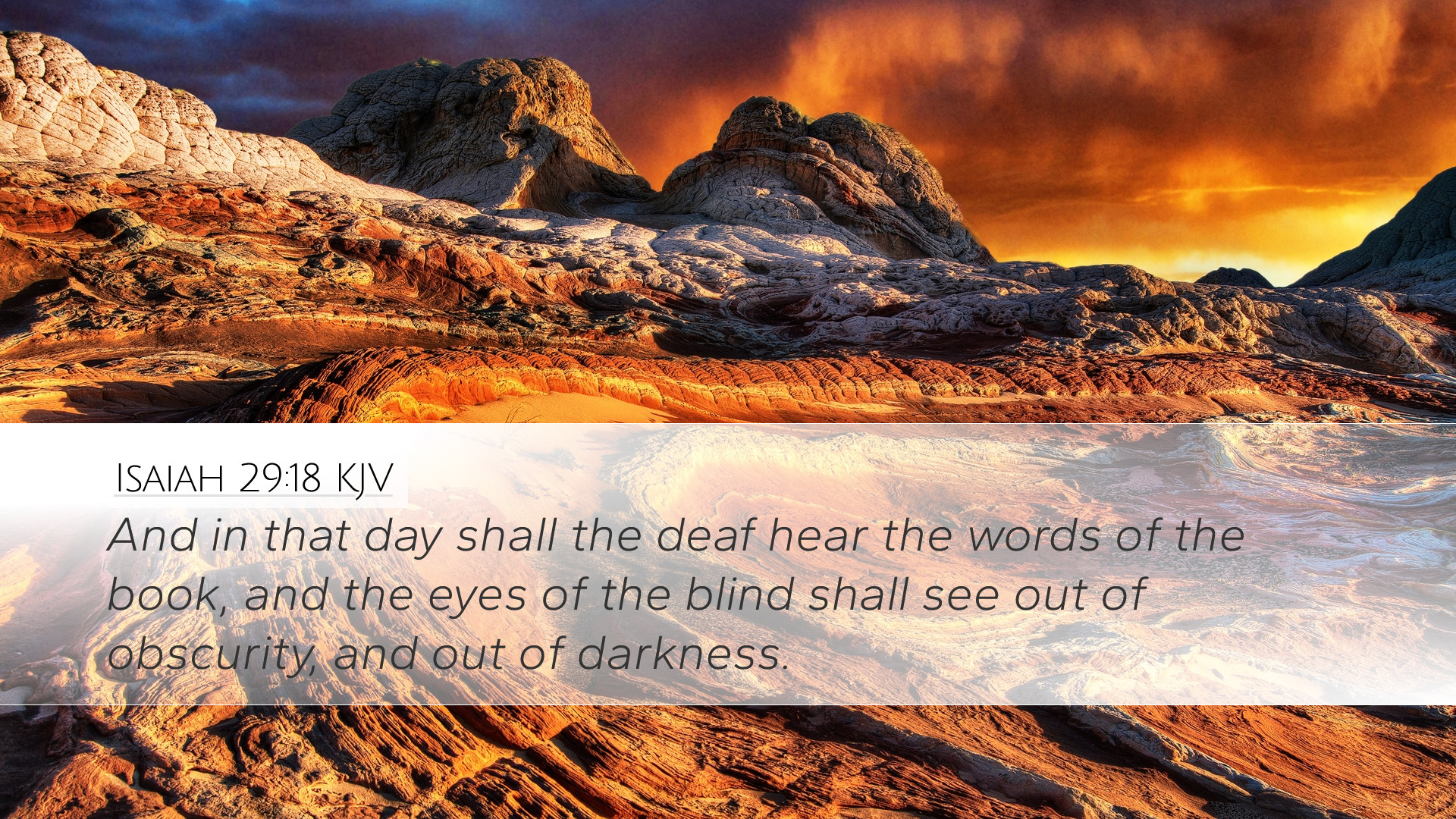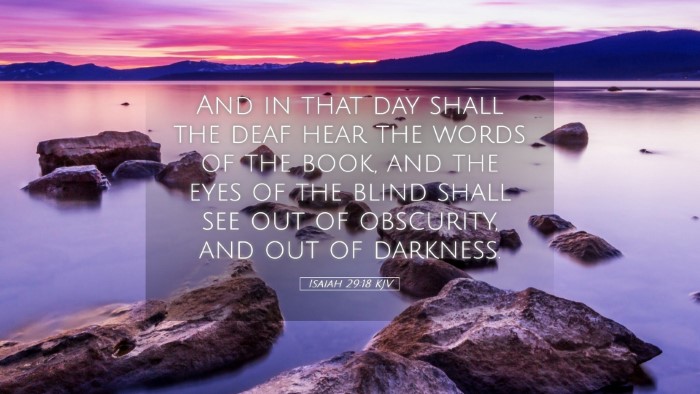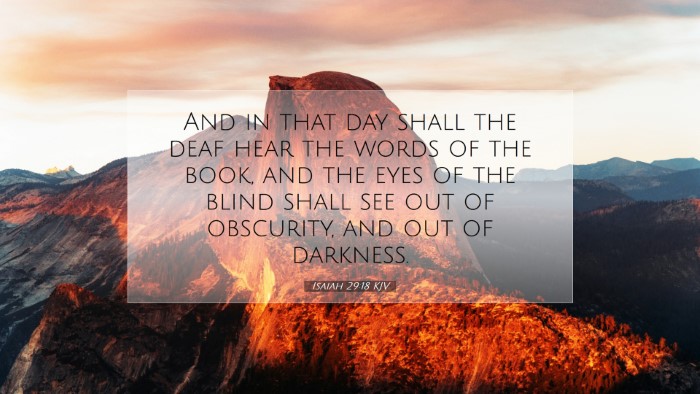Commentary on Isaiah 29:18
Isaiah 29:18 (KJV): "And in that day shall the deaf hear the words of the book, and the eyes of the blind shall see out of obscurity, and out of darkness."
Introduction
Isaiah 29:18 stands as a profound proclamation within the prophetic literature of the Old Testament, embodying both immediate and eschatological meanings. This verse speaks of divine intervention, where the deaf and blind, metaphors for spiritual and physical states, will experience a transformative revelation, suggesting a promise of restoration and enlightenment.
Contextual Background
The context surrounding Isaiah 29 includes themes of judgment and hope. The chapter addresses the consequences of Israel's rebellion against God, juxtaposed against the promise of future redemption. The imagery of deafness and blindness serves as a metaphor for the people’s spiritual condition and their failure to perceive divine truth.
Insights from Public Domain Commentaries
1. Matthew Henry’s Commentary
Matthew Henry emphasizes the transforming power of God’s word, stating that “the deaf shall hear” signifies not merely an auditory experience but an awakening to spiritual truths that have been ignored or misinterpreted. This verse illustrates a time when God’s word will penetrate the hearts of those who are spiritually deaf, enabling them to comprehend His messages fully.
Henry further reflects on the double entendre of seeing and hearing in the context of God revealing Himself: “the eyes of the blind shall see out of obscurity.” This notion underscores that true illumination comes from God, lifting individuals out of spiritual darkness into clarity and understanding.
2. Adam Clarke’s Commentary
Adam Clarke draws attention to the significance of the day referred to in the verse, which he interprets as a prophetic foreshadowing of the era of the Messiah. He notes, “in that day” refers to the redemptive work of Christ, who binds up the brokenhearted and brings sight to the blind. Clarke posits that this transformation reflects the gospel’s power to restore not only physical ailments but also spiritual deafness.
Moreover, Clarke elaborates on the imagery of darkness, suggesting that the promise entails liberation from ignorance and sin: “out of obscurity” signifies a removal from ignorance that hinders understanding. Clarke affirms that true enlightenment comes from accepting God’s revelation through Christ.
3. Albert Barnes’ Notes on the Bible
Albert Barnes provides an exegetical approach, interpreting the verse within the larger narrative of God’s future restoration of Israel. He points out that “the words of the book” refers to the sacred texts that contain God’s truth, which signifies that God will make His truth accessible even to those who had previously rejected it.
Barnes also stresses the eschatological expectation within the verse, explaining that the restoration of sight and hearing is not merely physical but represents spiritual awakening. He asserts that this marks the fulfillment of God’s enduring promise to His people, enabling a comprehensive understanding of His will and character.
Theological Implications
The multifaceted nature of Isaiah 29:18 invites scholars and theologians to explore the implications of divine revelation and restoration. The imagery of the deaf hearing and the blind seeing speaks to the transformative nature of salvation and the restorative acts of God throughout history.
Furthermore, the inclusion of both physical and spiritual transformation highlights God's holistic approach to human brokenness. This dual interpretation informs contemporary pastoral care, emphasizing both physical needs and spiritual growth in ministry contexts.
Practical Applications
For pastors and church leaders, Isaiah 29:18 serves as a reminder of the importance of proclaiming the gospel that opens spiritual ears and eyes. Engaging with the marginalized—those who may feel "deaf" or "blind" to the truth—becomes a key responsibility in ministry.
- Engaging the Community: Churches should focus on outreach programs that reach those who feel disconnected from God and society.
- Proclaiming Redemption: Sermons and teachings should emphasize God’s power to transform lives, enabling congregants to witness the miraculous work of God.
- Empowering the Church: Encourage congregants to share their stories of spiritual awakening, fostering an environment of hope and restoration.
Conclusion
Isaiah 29:18 resonates with themes of hope, redemption, and transformative power that are central to Christian faith. As explored through the insights of notable commentaries, the verse calls for a deeper understanding of God’s work of restoration. For scholars and practitioners alike, it serves as a poignant reminder of the redemptive narrative woven throughout Scripture, encouraging all to seek and reveal the light found in Christ.


